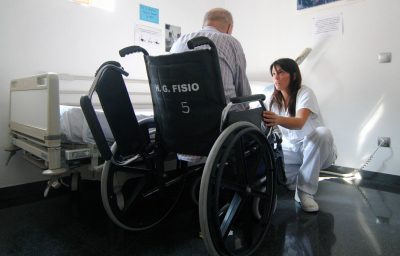
KU Leuven researchers have identified the biological mechanism that describes why some people experience abdominal pain when eating certain foods.
The finding paves the way for more efficient treatment of irritable bowel syndrome and other food intolerances. The study, carried out in mice and humans, was published in Nature.
Up to 20% of the world’s population suffers from irritable bowel syndrome (IBS), which causes stomach pain or severe discomfort after eating. This affects their quality of life. Gluten-free and other diets can provide some relief, but this works a mystery since the patients are not allergic to the foods in question, nor do they have known conditions such as coeliac disease.
“Very often, these patients are not taken seriously by physicians, and the lack of an allergic response is used as an argument that this is all in mind, and that they don’t have a problem with their gut physiology,” says Professor Guy Boeckxstaens, a gastroenterologist at KU Leuven and lead author of the new research. “With these new insights, we provide further evidence that we are dealing with a real disease.”
In a healthy intestine, the immune system does not react to foods, so the first step was to determine what might cause this tolerance to breaking down. Since people with IBS often report that their symptoms began after a gastrointestinal infection, such as food poisoning, the researchers started with the idea that an infection. In contrast, a particular food is present in the gut, which might sensitize the food’s immune system.
They infected mice with a stomach bug, and at the same time, fed them ovalbumin, a protein found in egg white that is commonly used in experiments as a model food antigen. An antigen is any molecule that provokes an immune response. Once the infection cleared, the mice were given ovalbumin again to see if their immune systems had become sensitized to it. The results were affirmative: the ovalbumin on its own provoked mast cell activation, histamine release, and digestive intolerance with increased abdominal pain. This was not the case in mice that had not been infected with the bug and received ovalbumin.
The researchers were then able to unpick the series of events in the immune response that connected the ingestion of ovalbumin to activation of the mast cells. Significantly, this immune response only occurred in the part of the intestine infected by disruptive bacteria. It did not produce more general symptoms of a food allergy.








